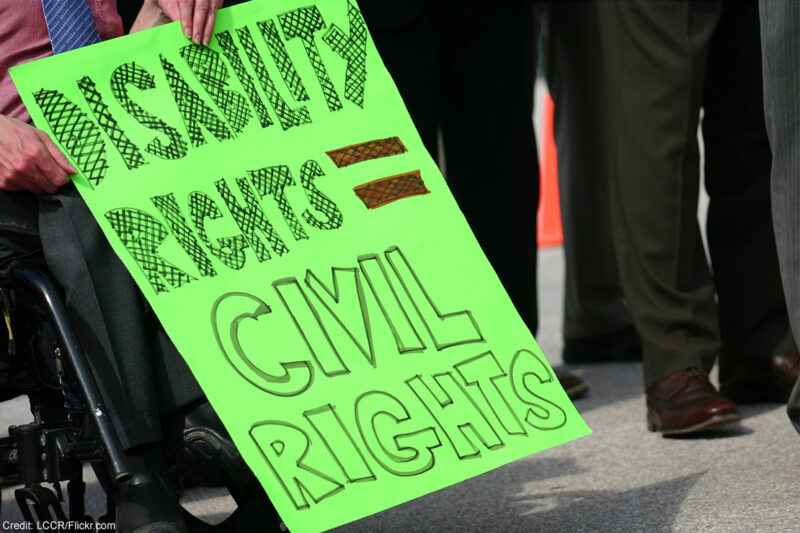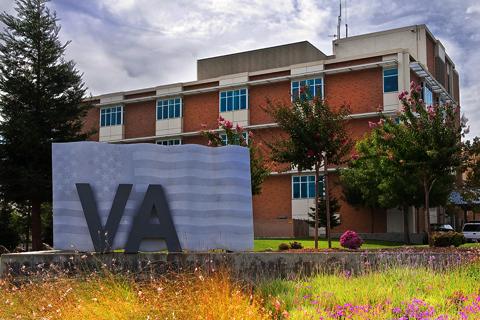The Biden Administration’s Disability Rights To-Do List


People with disabilities face enormous barriers in the United States today — from a pandemic that is killing disabled people, especially those in institutions, at staggering rates; to schools that too often fail, traumatize, and criminalize students with disabilities; to a criminal legal system that unnecessarily targets, incarcerates, and kills Black and Brown people with mental disabilities. The administration must make disability rights a priority from day one, with a commitment to addressing head-on these harms and the intersection of discrimination and marginalization around disability, race, and poverty.
Here are just a few of the many items that should top the Biden-Harris administration’s to-do list:
Ensure that people with disabilities can live in their communities, not in institutions, and support the direct care workforce:
- People with disabilities have a right to live in the community as independently as possible, and to receive necessary services and support in their homes. But for many people with disabilities, especially people of color, that right is far from a reality as they are segregated in institutions like nursing homes, intermediate care facilities, and psychiatric facilities — even though they could live in integrated community settings with appropriate supports. As COVID-19 ravages congregate care settings, killing people who live in these institutions at extraordinary rates, the dangers of living in institutions have been laid bare. The incoming Biden-Harris administration must implement a national strategy to expand access to Medicaid’s home and community based services (HCBS). HCBS funds the in-home support and services that let people with disabilities live safely in their communities. Long waiting lists for HCBS hinder many disabled people’s goals of getting out of institutions and living self-directed lives. The administration must end the long waiting lists for HCBS by providing more funding for these services, and must increase enforcement of laws that prohibit the unnecessary segregation of people with disabilities in institutions.
- Along with eliminating HCBS waiting lists, the new administration must also push Congress to reauthorize and fully fund the Money Follows the Person program, which assists states to provide services and supports to disabled people in their communities. Money Follows the Person is critical for ensuring that people with disabilities can live self-directed, integrated, safe lives in their communities.
- The administration must work with Congress to ensure that the safety and needs of the direct care workforce (e.g., home care workers, direct support professionals, residential care workers, nursing assistants) that provides services and supports to people with disabilities are prioritized during and after the pandemic. These workers, who are overwhelmingly women and disproportionately women of color, have labored in the shadows for far too long and must have access to PPE, sick leave, hazard pay, and other workplace protections.
Stop law enforcement’s disproportionate targeting of people with mental health disabilities, and the entrapment of people with disabilities in the criminal legal system:
- As the recent killings of . and too many others have made clear, urgent action is needed to end the overreliance on police response to mental health crises that leave far too many Black and Brown disabled people injured, traumatized, or dead. The administration must encourage federal support for robust community-based programs that provide mental health professionals and peer supports — rather than law enforcement — to respond to mental health crises.
- Even if people with disabilities survive an initial encounter with police, the criminal legal system is stacked against them at every stage. Pretrial release, supervision, jails, and prisons all impose burdensome requirements that pose special challenges for many people with disabilities. People with disabilities are excluded from classes and programs in incarceration and find themselves unable to break free from the criminal legal system, which fails to take disability into account. The incoming administration must champion changes to the criminal legal system that reduce incarceration rates nationwide, lessen the risk of harm to people with disabilities, and provide the accommodations disabled people need to avoid incarceration and live safe, productive lives free of the criminal legal system.
Ensure that students with disabilities have access to effective and safe education:
- Now more than ever, the administration needs to make sure that states and school districts continue to meet their obligation to provide appropriate educational services and assessments to students with disabilities. This includes helping them make up for instructional time and services lost during distance learning and school closures due to COVID-19. To support students with disabilities who have been left behind during the pandemic, the administration must make targeted Individuals with Disabilities Education Act (IDEA) funding a priority for the next congressional COVID-19 relief package. The Department of Education must also provide robust guidance that highlights best practices that school districts have adopted during the pandemic and ensures students with disabilities are not unnecessarily pushed into alternative schools during the pandemic.
- The administration also must stop the unnecessary and harmful restraint and seclusion of students with disabilities in schools by executive action and supporting appropriate legislation. Mechanical or physical restraints harm children and inflict lasting psychological trauma, yet their use still happens far too often in schools. Action is needed now to end these draconian practices and ensure that our schools are places where children feel safe to learn.
- The overuse of police, known as school resource officers, in our nation’s schools disproportionately harms students of color with disabilities, criminalizes normal childhood behavior, and funnels students into the school-to-prison pipeline. The administration must take executive action and pursue legislative opportunities to eliminate federal funding that puts police in schools and reinvest those funds to hire school counselors, psychologists, and other supportive mental health personnel for our students. The administration must also investigate school districts where the data show disproportionate rates of law enforcement referrals and arrests for students with disabilities, and hold those school districts accountable.


